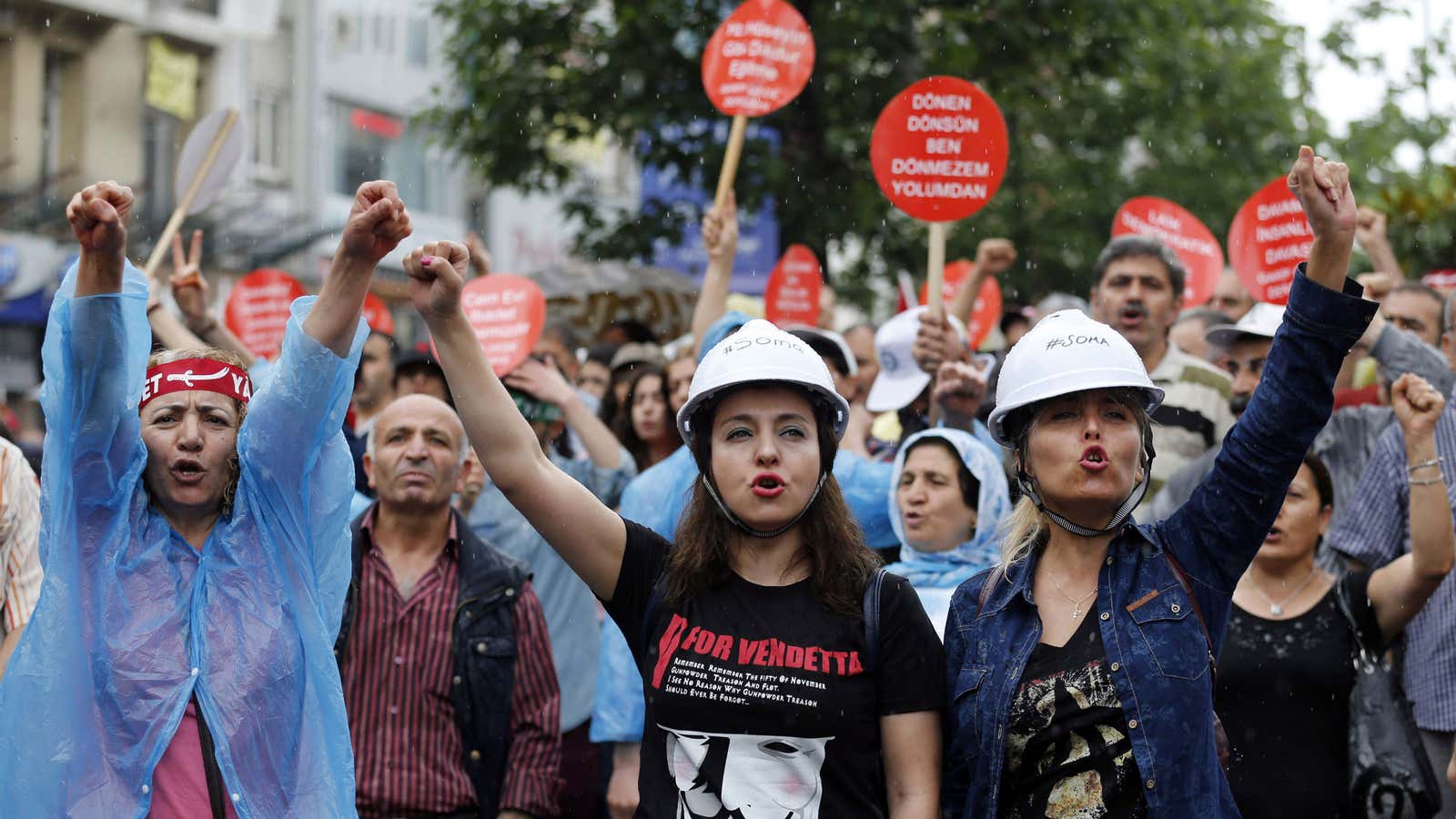On Sunday night, after Turkey’s prime minister Recep Tayyip Erdoğan won the presidential election, social media was inundated by messages like this one from Facebook: “Those who did not bother to move their behind from their beach chair have nothing to say about this country. They should never ever complain about Turkey’s ruler Erdoğan and his party AKP.”
With 52% preference over a 76% voter turnout, Erdoğan was elected as the country’s 12th president no thanks to his voters, but rather to his opponents: as it was expected, the outcome was not determined by those who went to the ballots but by those who did not.
As the first round of elections was scheduled for August 10, a low turnout was anticipated, especially from the opposition camp. Holding elections in the midst of summer always suited theJustice and Development Party (AKP): Erdoğan’s support base comes from low income families, which lack the means to take summer vacations. Furthermore, his loyal electorate is very dedicated, and considers it a duty to go to the ballot box and support their leader.
The same, however, is not true for the traditional supporters of the two biggest opposition parties, the Republican People Party (CHP) and the Nationalist Movement Party (MHP).
Their supporters have a weaker loyalty and their allegiance to these parties is driven more by being staunchly against the AKP than by their endorsement of the political philosophy of these two parties.
In fact, CHP and MHP decided to capitalize on their constituencies’ common dislike of AKP by making an alliance for a joint candidate. Yet their choice of Ekmeleddin İhsanoğlu, the former secretary general of Islamic Conference Organization (ICO) was met with both surprise and suspicion.
İhsanoğlu, who in the eyes of those who support him is a pious yet modern man, tried hard to convince the CHP constituency that he would be loyal to secularism. But the CHP supporters objected to his Islamic aligning. The MHP, on the other hand, saw İhsanoğlu as too much of an intellectual figure, distant from the ordinary citizen.
The candidate could not mobilize CHP and MHP voters and got approximately 15 million votes (38%), five million less than the votes casted for CHP and MHP in the March local elections. Meanwhile, the pro-Kurdish Peoples’ Democracy Party’s (HDP) candidate, Selahattin Demirtaş, surprisingly won 9.8% of the vote. Supported by the leftist and socialist groups, Demirtaş gained the best ever election result for the Kurdish political movement, which otherwise fluctuates around 6%. This was possible thanks to the candidate’s campaign program, which emphasized liberal values over narrow ethnic nationalism. Demirtaş got votes even in the most conservative and nationalist cities (those hostile to Kurdish political movement), which should be taken into account especially by the CHP, whose ambiguous stance towards the Kurdish issue has negatively affected the party’s performance.
Those who fear Erdoğan’s authoritarian tendencies now accuse those who didn’t vote against him of being traitors and leaving the country in the hands of a dictator. While a sizable number of those who didn’t vote (and who are mainly believed to belong to the CHP and MHP court) seems to be “vacationers,” there is also a sizable number that boycotted the elections because they didn’t endorse either of the candidates.
On Twitter and Facebook, the boycotters reject the accusation of being traitors, saying that they simply did not feel represented by any candidate. They are, however, Turkey’s new “political force”: they decided unwillingly who will be the new president. While it didn’t help against Erdoğan, the boycotters’ stance might trigger the long sought change in Turkey’s opposition parties, whose inefficiency has long been a source of frustration for the opponents of the AKP.
